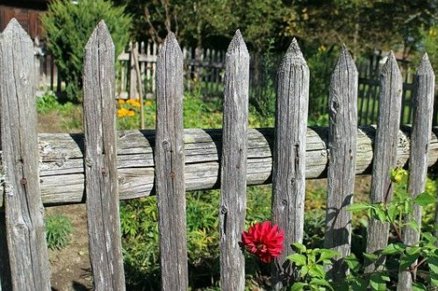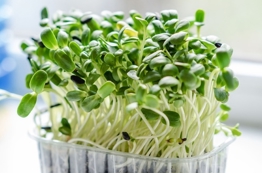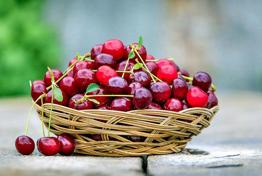Laws of crops growing during shemitah

Do I need to verbalize that my shemitah fruits are ownerless? Should I remove the fence around my garden? What if I'm concerned that people will ruin my garden? Chapter 6 of the Consumer's Guide to Shemitah.
A. Rendering crops ownerless
- The fruits and vegetables that belong to the shemitah year have shemitah sanctity and should be rendered hefker, ownerless.[1] The produce is free for the taking for all Jews.[2] One should allow any Jew to enter one's garden[3] and pick crops for his family.
- There is no need to make a verbal declaration. It is sufficient to treat the crops as if they are not one's personal property.[4]
- It is only permissible to pick small amounts of produce at a time for home use.[5] This harvest should be performed in a different way than usual.[6]
- It is forbidden to fence in one's garden to prevent Jews from taking produce.[7] However, there is no need to tear down fences (or to make openings in them) that are already standing prior to the start of the shemitah.[8]
- It is permissible to prevent entry to the following:
- People who might harm the trees, plants, and equipment in one's garden.
- Non-Jews.[9]
- When necessary, it is permissible to erect a fence and notify where it is possible to receive a key.[10] It is also permissible to hang up a sign at the entrance of the garden requesting that people come only at certain times.
- Permission should be asked to pick produce.[11] The owner may not deny permission, however, because the produce is ownerless. If there is a sign declaring that the produce is ownerless, it is permissible to pick produce without first asking permission.
- One may lock the garden at night to prevent entry to those who do not know how to properly handle the sacred crops, when there is no way to inform them.[12]
- It is permissible to harvest fruit in a grove whose ownership was transferred to an otzar beit din, but the beit din should be reimbursed for its participation in the expenses of the fruit's cultivation.[13] For more on otzar beit din, see Chapter 11 B.1.
- If the land owner fails to render his produce ownerless, the crops are nevertheless permissible to eat.[14]
B. Using sacred crops
- It is a Torah prohibition to harvest fruit for the purpose of strengthening the tree or to enhance the fruit remaining on the trees (thinning).[15]
- Unripe produce should not be harvested. It is only permissible to harvest produce that is edible in extenuating circumstances[16] or through artificial ripening processes.
- Shemitah produce should not be given to non-Jews.[17] However, if hosting non-Jews at one's home, it is permissible to offer them shemitah.[18]
It is forbidden to destroy fruits and vegetables that have shemitah sanctity.[19] For detailed guidelines on using sacred produce in the kitchen, see Chapter 16.
[1] Rambam 4:24.
[2] Rambam, ibid., 4:30. On the question of whether shemitah fruit should also be ownerless for non-Jews, or if it is sufficient to render it ownerless for Jews, see Shabbat Ha'aretz 4:30 §1–2; Nitzanei Eretz IV, pp. 54–55; the letter of the Aderet, ibid., p. 21.
[3] On the question of whether the fruit is considered ownerless if the owner did not render them as such (אפקעתא דמלכא or הפקירא דידיה; that is, whether the party rendering the fruit ownerless is the King, here G-d, or the owner): according to Maharit, the fruit is automatically ownerless. Beit Yosef, however, rules that it is incumbent upon the owner to do so. See Minchat Chinuch 84:1; Shabbat Ha'aretz 4:24 §4, 6:15 §1. The land—not only the fruit—also becomes ownerless; that is, anyone can enter the grove or garden. See Nedarim 42b; Rambam, ibid.; Shabbat Ha'aretz 4:24 §1, 7:18. However, the tree itself is not ownerless. See Rash, Kila'im 7:4.
[4] Rabbi Kook, introduction to Shabbat Ha'aretz, chap. 11. Some necessitate a verbal declaration. See Shabbat Ha'aretz 4:24 §4; 4:22 §3.
[5] Rambam 4:22–24. See Shabbat Ha'aretz 4:22 §1–2.
[6] Rambam 4:1, 22–24; Betzet Hashanah p. 59 §18. See also Shabbat Ha'aretz 4:1 §3–4, 22 §1, that some permit harvesting without a shinuy if the land was properly rendered ownerless: ibid., 23 §1–6.
[7] Rambam 4:24. This is prohibited even if the owner intends to give out the fruit to the poor. See Shabbat Ha'aretz, ibid., §2.
[8] Kessef Mishneh 4:24. See also Shabbat Ha'aretz, ibid.
[9] Rambam 4:30; Shabbat Ha'aretz 4:30 §1. See Responsa Rashbash §258, s.v. vele'inyan, who writes that fencing and stationing guards are only permissible for the otzar beit din. See Mishnat Yosef II §20.
[10] This was stated in the name of the Chazon Ish, Mitzvot Ha'aretz (Kahana) §44, n. 89. It seems that this is permitted if the owner wants to lock the garden to prevent non-Jews from trespassing. This is permitted, providing that he puts up a sign notifying Jews that they can receive a key. However, if he is concerned that Jews will enter, it is not clear that erecting a fence while putting up a sign would be permitted. See Hilchot Shevi'it §4, Kise David §90.
[11] Rabbi Kook, Shabbat Ha'aretz 6:15 §1, based on the Ra'avad and Tosafot Shantz, Eduyot 5:1. Chazal instituted that people ask for permission even during the shemitah year, so they do not get used to eating others' fruit without permission on non-shemitah years. He adds that if the owner transgresses and does not permit others to partake of the produce, it is forbidden to take the produce without his consent. See Kerem Tziyon chap. 12, Gidulei Tziyon §2a, who disagrees with this ruling. See Rabbi Zilber (Hilchot Shevi'it §7,15 and Kise David §110), who maintains that if one requests permission and the landowner refuses, it is permissible to take the produce even without permission.
[12] Guidelines of Rabbi Eliahu.
[13] Betzet Hashanah, p. 42 s.v. yerakot and n. 10.
[14] See Chapter 8 §2.
[15] Rambam 4:22; Shabbat Ha'aretz 4:22 §3–4.
[16] Rambam 5:15, Shabbat Ha'aretz, ibid.
[17] Tosefta, Shevi'it 6:20; Rambam 5:13; Shabbat Ha'aretz ibid. Here the prohibition is because this causes shemitah fruit to be degraded or spoiled. The Aruch Hashulchan (§24:4) permits this, maintaining that the prohibition is only if the shemitah fruit are used to repay a debt to non-Jew.
[18] Rabbi Kook, Shabbat Ha'aretz 5:13 §5, that the Rambam allows giving fruit to guests, even if they are non-Jews; Betzet Hashanah, p. 58 §12.
[19] Rambam 5:17. See also Shabbat Ha'aretz 5:3 §5.




